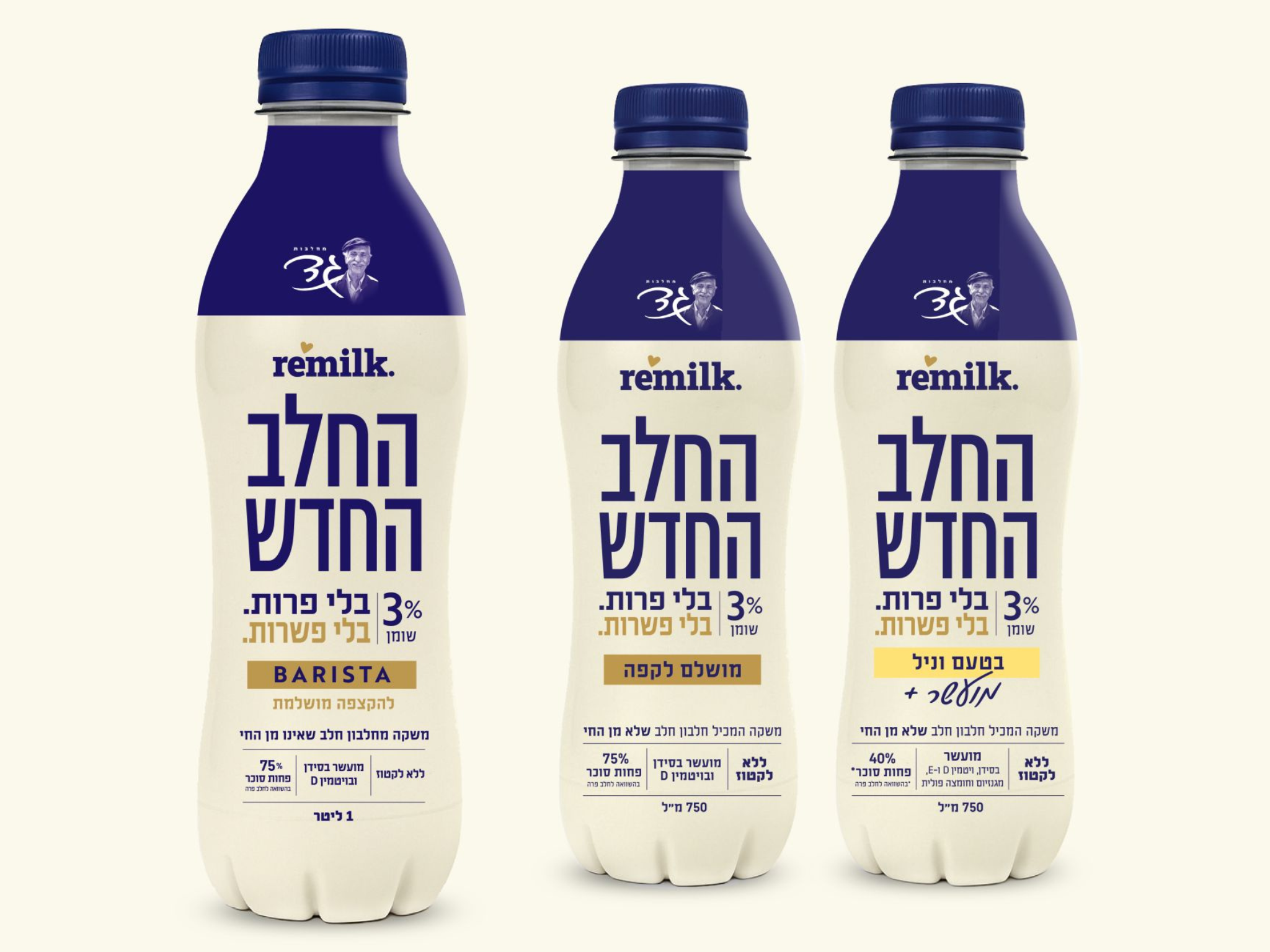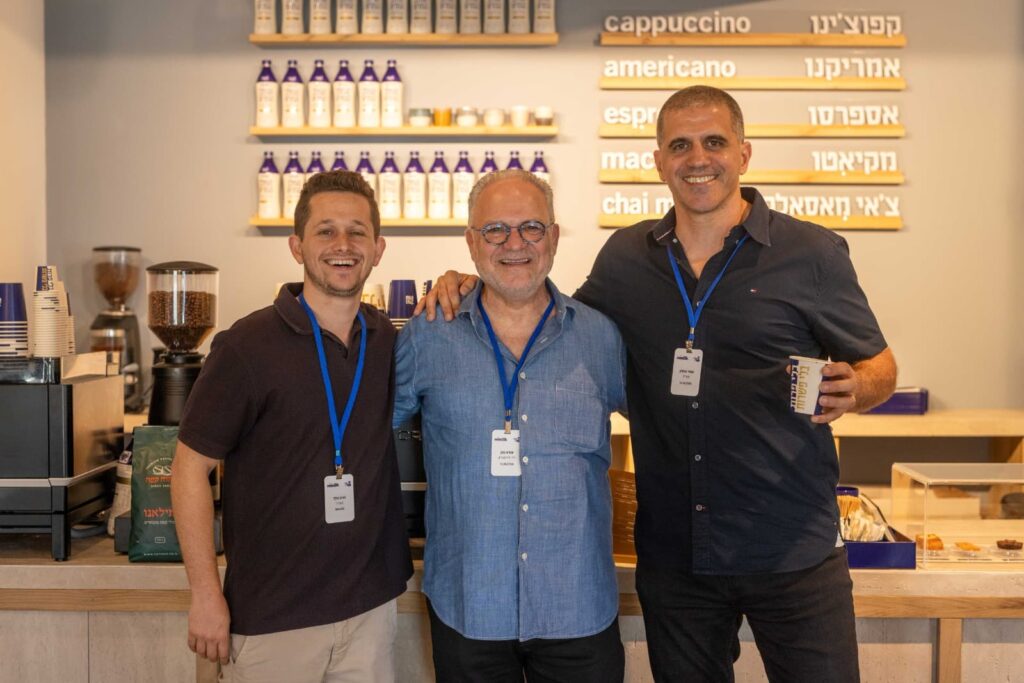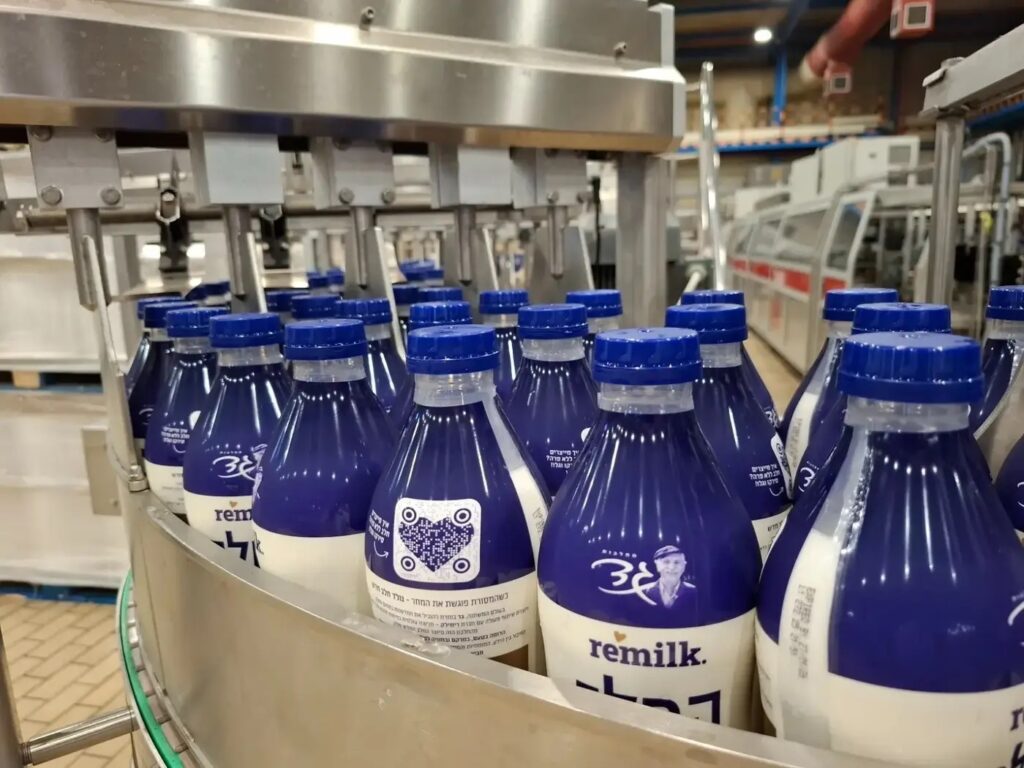
Remilk has partnered with industry leader Gad Dairies to launch three animal-free milk products using its precision-fermented whey protein in cafés, restaurants and (soon) supermarkets in Israel.
Two years after being cleared to sell its cow-free protein in Israel, precision fermentation player Remilk has commercialised the ingredient with a line of milk products.
The Rehovot-based startup has teamed up with Gad Dairies, the country’s fourth-largest dairy company, to launch The New Milk range. The two firms have begun distributing a barista-style milk at coffee shops, restaurants and hotels, and will introduce an everyday milk and a vanilla-flavoured version in supermarkets in January.
Additional products are set to be launched in the coming months. “This is a defining moment for the dairy category,” said Amir Aharon, CEO of Gad Dairies. “The New Milk is more than a product – it’s a historic milestone where generations of dairy tradition meet groundbreaking technology.”
Remilk’s fermented whey protein approved to sell in four countries

Founded in 2019 by Aviv Wolff and Ori Cohavi, Remilk employs precision fermentation to produce bioidentical milk proteins via yeast. The technology involves inserting specific DNA into microbes to instruct them to produce desired molecules when fermented.
Remilk uses it to make beta-lactoglobulin, the main whey protein found in bovine milk (accounting for 65% of the total whey content). It is said to be nutritionally superior to most proteins, with gelling, foaming and emulsifying properties that enhance the texture of a range of food and beverage products.
Beta-lactoglobulin also contains a larger concentration of essential and branched-chain amino acids than other whey proteins (such as leucine, which is key for muscle synthesis). Plus, it’s tasteless, stable across a wide pH range, and tolerant to heat.
The startup combines its recombinant whey protein with shea and coconut fat, sugar, acidity regulators, flavours, stabilisers, salt, and emulsifiers to turn it into milk, which is fortified with calcium, vitamins D and E, and dietary fibre. The entire process emits up to 97% fewer greenhouse gases than conventional milk production, in addition to requiring 99% less land and over 90% less water.
Remilk has raised over $150M to develop and commercialise the technology, and was the first company to secure regulatory approval for precision-fermented dairy proteins in Israel, back in 2023. Moreover, it has been cleared to sell its beta-lactoglobulin in Singapore, the US, and Canada, too.
“We founded Remilk with a clear vision: to create a better, healthier, and tastier world through real milk made without cows. Today, in a remarkable global milestone, that vision is becoming a reality,” Wolff, who is the CEO, said of the product launches.
“Our partnership with Gad Dairies, a brand with an unmatched culinary legacy, is the natural next step to ensure the highest-quality, best-tasting products. We’re proud of this collaboration that bridges vision and innovation with uncompromising taste and quality,” he added.
Taste is the top driver for precision-fermented milk consumption

Remilk described the new range as “identical in taste” to cow’s milk and rich in nutrients. It can froth quickly into a stale form, is fortified with calcium and vitamins, and contains 75% less sugar.
The products are also kosher-pareve (with no traces of conventional dairy) and free from lactose (though, being bioidentical to cow’s milk, they’re not suitable for people with dairy allergies). They’ll be sold in 750ml bottles for 15 shekels ($4.64).
To gauge consumer interest, the two companies partnered with Geocartography Knowledge Group on a survey of local consumers, finding that 92% of Israelis drink cow’s milk and 61% drink milk alternatives. Additionally, 56% consume both, and 55% say existing plant-based milks aren’t tasty enough, indicating an openness to innovation but a preference for the familiar.
The poll further revealed that 66% of respondents maintain separation between meat and dairy (in accordance with kosher dietary laws), and among them, half would drink coffee with milk after a meat-based meal if it were a pareve milk that tasted like conventional milk.
According to Remilk, the survey pinpoints taste as by far the leading driver of the adoption of fermentation-derived dairy products, with consumers expecting a product that matches cow’s milk on flavour, texture and functionality.
“Our collaboration with Remilk represents a global breakthrough for Gad: milk born from advanced science and technology, yet rooted in decades of culinary tradition,” said Aharon. “The New Milk proves that it’s possible to combine premium quality, sustainability, and industrial innovation without sacrificing taste.”
While several companies have received regulatory approval for different milk proteins globally, very few have commercialised liquid milk products. Perfect Day’s beta-lactoglobulin has been used in milk alternatives by Nestlé’s Cowabunga label, Tomorrow Farms’s Bored Cow range, and Strive Nutrition’s FreeMilk line in the US, and its own Very Dairy brand in Singapore.
And earlier this year, Israel’s Imagindairy linked up with its founding investor Strauss Group to unveil two products using its precision-fermented beta-lactoglobulin ingredient in the country, including a milk under the Yotvata brand.
The post Israel’s Remilk & Gad Dairies Roll Out ‘The New Milk’ Range with Cow-Free Whey Protein appeared first on Green Queen.
This post was originally published on Green Queen.